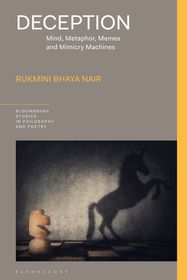
Julian Augustus
Platonism, Myth, and the Refounding of Rome
Sorozatcím: Oxford Studies in Late Antiquity;
-
10% KEDVEZMÉNY?
- A kedvezmény csak az 'Értesítés a kedvenc témákról' hírlevelünk címzettjeinek rendeléseire érvényes.
- Kiadói listaár GBP 86.00
-
41 086 Ft (39 130 Ft + 5% áfa)
Az ár azért becsült, mert a rendelés pillanatában nem lehet pontosan tudni, hogy a beérkezéskor milyen lesz a forint árfolyama az adott termék eredeti devizájához képest. Ha a forint romlana, kissé többet, ha javulna, kissé kevesebbet kell majd fizetnie.
- Kedvezmény(ek) 10% (cc. 4 109 Ft off)
- Kedvezményes ár 36 978 Ft (35 217 Ft + 5% áfa)
Iratkozzon fel most és részesüljön kedvezőbb árainkból!
Feliratkozom
41 086 Ft

Beszerezhetőség
Még nem jelent meg, de rendelhető. A megjelenéstől számított néhány héten belül megérkezik.
Why don't you give exact delivery time?
A beszerzés időigényét az eddigi tapasztalatokra alapozva adjuk meg. Azért becsült, mert a terméket külföldről hozzuk be, így a kiadó kiszolgálásának pillanatnyi gyorsaságától is függ. A megadottnál gyorsabb és lassabb szállítás is elképzelhető, de mindent megteszünk, hogy Ön a lehető leghamarabb jusson hozzá a termékhez.
A termék adatai:
- Kiadó OUP USA
- Megjelenés dátuma 2025. december 12.
- ISBN 9780197787519
- Kötéstípus Keménykötés
- Terjedelem376 oldal
- Méret 238x165x34 mm
- Súly 640 g
- Nyelv angol 700
Kategóriák
Rövid leírás:
This book argues that Julian's self-construction, in his writings, embraces the identities of a statesman and soldier more than of a philosopher, of a Roman more than a Greek, and of a mere human rather than a semi-divine being.
TöbbHosszú leírás:
The Roman emperor Julian (r. 361-363 CE) was a man of action and of letters, which he employed in an effort to return the Empire to the light of the pagan gods, and reverse the Christianization of the empire advanced by his uncle Constantine and the sons of Constantine. This enterprise was inspired and guided by his conversion to the Neoplatonic philosophy and radical pagan Hellenism of Iamblichus and his disciples, and promoted by his production of Greek orations, letters, and satires. These works present a coherent vision of the providentially guided history and destiny of Rome as a series of foundations and refoundations enacted by rulers such as Romulus, Numa, and Caesar Augustus.
As this book demonstrates, Julian offers an Iamblichean approach to the exegesis of the legends of Rome's founding, the allegories of Plato's dialogues, and myths of his own creation in order to articulate his own role in the refounding of the Empire. Furthermore, argues Jeremy Swist, approaching the wider examination of Julian's imperial self-image on these terms ends up nuancing and challenging common assumptions influenced by the rhetoric of his contemporary proponents. In his reverence for the gods and for philosophy, the emperor's self-construction embraces the identities of a statesman and soldier more than of a philosopher, of a Roman more than a Greek, and of a mere human rather than a semi-divine being. While distancing himself from the ideal models of philosophical virtue and imperial founding that inspire his own actions, he adopts a different set of exemplary figures as mirrors of himself.
Tartalomjegyzék:
07/04/2025
Több




